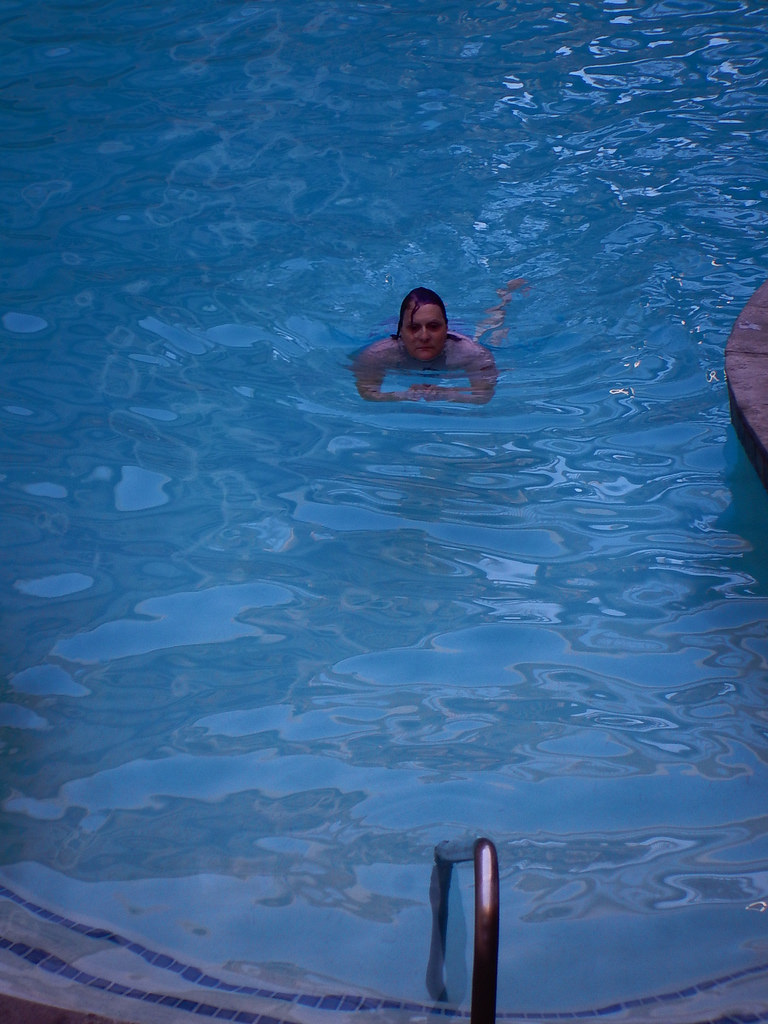COST & VALUE
As a rule, an inground pool is several times as expensive as an above ground pool. Benefits of this more substantial initial investment typically come in the form of easier decking at ground level and ultimately value added to the home. An above ground pool, while substantially cheaper, will not last as long and requires consideration of a deck, most often in addition to the pool cost. These pools generally do not add any value to the home as they are perceived as temporary and less cosmetically desirable, though implementing decking and integrating clever landscaping can improve aesthetics. The flipside is that above ground pools are comparably inexpensive to replace whereas, by their nature, repairs on inground pools can quickly become a pricey operation.
LIFESPAN
Inground pools are the clear victor for longevity, and in particular with fiberglass or concrete construction they can last a long time, though replacing liners in vinyl pools and the costs of resurfacing on concrete pools need to be considered. Broadly speaking, an inground pool can be expected to last well over 20 years, while an above ground pool has an average more like 7-15 years.
UPKEEP
With any pool there are maintenance costs, and these can about the same for both types; both require cleaning, filtering, refilling to deal with evaporation, heating, opening and closing dependent on weather and other changes, and balancing chemical content. If the above ground pool does not have decking, this could complicate some of the processes, but if doesn’t have underground piping this also could simplify other things. A potential factor in the maintenance effort is who put the pool together: inground pools are typically constructed by professionals and above ground pools are frequently assembled from prepackaged kits by the homeowners.
DIMENSIONS & CUSTOMIZATION
More customization is available in inground pools; they can be made into more shapes, their depths can vary more than their counterparts’ and there is a lot more choice in the materials involved. A concrete pool, though it takes the longest to complete, has virtually unlimited size and shape options. Vinyl pools—referencing the lining rather than the walls—and fiberglass pools have fewer shape options. Though they are not substantially limited in overall size availability, above ground pools are more limited to the available shape selection and are typically not deep enough to allow for diving.
There are always going to be additional considerations when figuring out which pool is right for you. Some backyards, whether because of layout or uncooperative terrain, cannot accommodate an inground pool. The temperature variation in the region could make maintenance more difficult for either type, especially if it freezes. Perhaps most importantly: if there will be children and pets frequently around the pool, above-ground pools are intrinsically safer by some margin. Some localities have laws pertaining to pools for safety reasons and potential pool-owners will want to check what’s on the books for their property.
As a rule, an inground pool is several times as expensive as an above ground pool. Benefits of this more substantial initial investment typically come in the form of easier decking at ground level and ultimately value added to the home. An above ground pool, while substantially cheaper, will not last as long and requires consideration of a deck, most often in addition to the pool cost. These pools generally do not add any value to the home as they are perceived as temporary and less cosmetically desirable, though implementing decking and integrating clever landscaping can improve aesthetics. The flipside is that above ground pools are comparably inexpensive to replace whereas, by their nature, repairs on inground pools can quickly become a pricey operation.
LIFESPAN
Inground pools are the clear victor for longevity, and in particular with fiberglass or concrete construction they can last a long time, though replacing liners in vinyl pools and the costs of resurfacing on concrete pools need to be considered. Broadly speaking, an inground pool can be expected to last well over 20 years, while an above ground pool has an average more like 7-15 years.
UPKEEP
With any pool there are maintenance costs, and these can about the same for both types; both require cleaning, filtering, refilling to deal with evaporation, heating, opening and closing dependent on weather and other changes, and balancing chemical content. If the above ground pool does not have decking, this could complicate some of the processes, but if doesn’t have underground piping this also could simplify other things. A potential factor in the maintenance effort is who put the pool together: inground pools are typically constructed by professionals and above ground pools are frequently assembled from prepackaged kits by the homeowners.
DIMENSIONS & CUSTOMIZATION
More customization is available in inground pools; they can be made into more shapes, their depths can vary more than their counterparts’ and there is a lot more choice in the materials involved. A concrete pool, though it takes the longest to complete, has virtually unlimited size and shape options. Vinyl pools—referencing the lining rather than the walls—and fiberglass pools have fewer shape options. Though they are not substantially limited in overall size availability, above ground pools are more limited to the available shape selection and are typically not deep enough to allow for diving.
There are always going to be additional considerations when figuring out which pool is right for you. Some backyards, whether because of layout or uncooperative terrain, cannot accommodate an inground pool. The temperature variation in the region could make maintenance more difficult for either type, especially if it freezes. Perhaps most importantly: if there will be children and pets frequently around the pool, above-ground pools are intrinsically safer by some margin. Some localities have laws pertaining to pools for safety reasons and potential pool-owners will want to check what’s on the books for their property.


